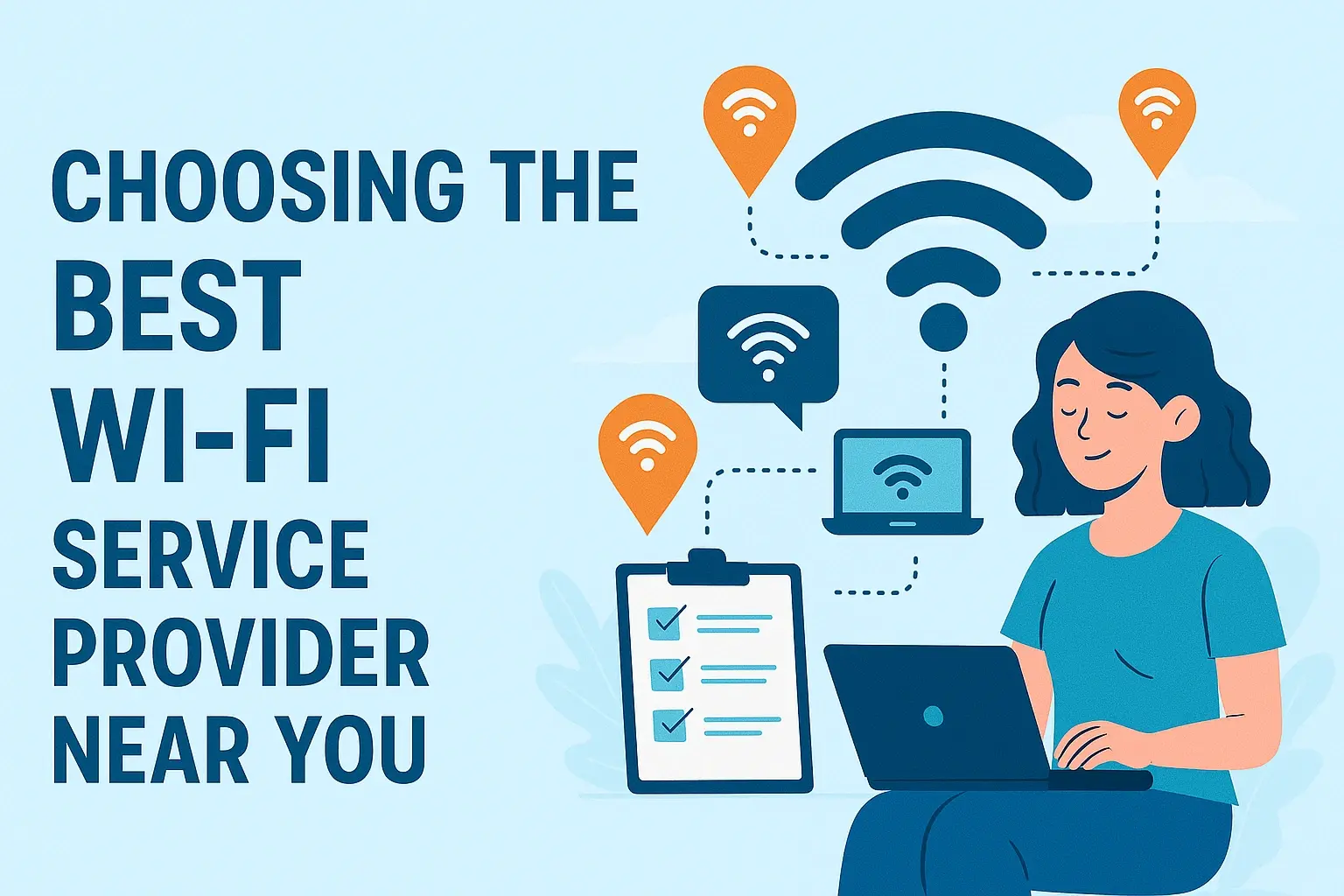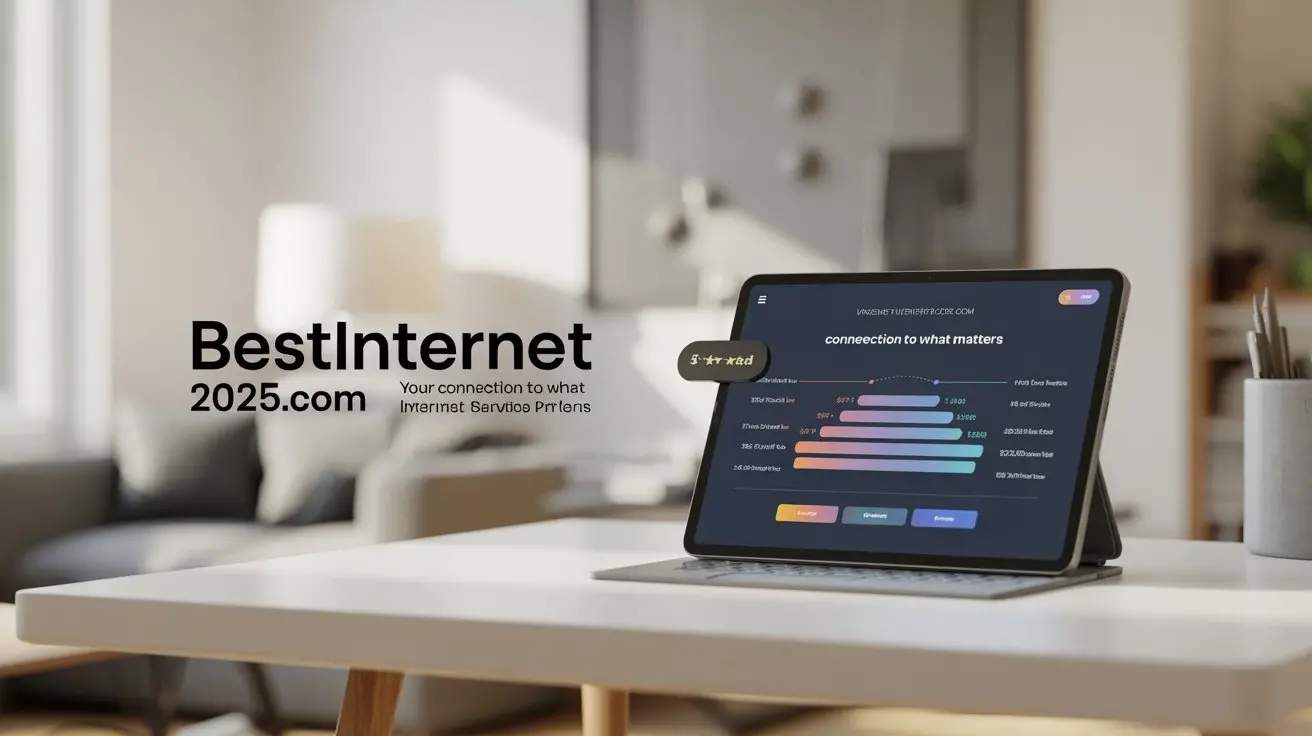Home Internet Providers: Choosing the Best Connection for Your Home

Home Internet Providers: Choosing the Best Connection for Your Home
In today's digital age, having a reliable and fast internet connection is essential for both work and leisure activities. When it comes to home internet providers, you have several options to choose from. This article will guide you through the different types of home internet connections, factors to consider when selecting a provider, and tips for choosing the best internet service for your needs.
Introduction
In the modern world, internet connectivity has become a fundamental part of our daily lives. From streaming movies and music to conducting online meetings, having a stable and fast internet connection is crucial. Selecting the right home internet provider is the first step towards enjoying a seamless online experience.
Importance of Home Internet
The internet plays a vital role in various aspects of our lives. It allows us to stay connected with friends and family, access educational resources, shop online, and even work remotely. Reliable and high-speed internet is no longer a luxury but a necessity.
Types of Home Internet Providers
When it comes to home internet, there are several options available. Each type of provider offers different advantages and disadvantages. Let's explore the most common types:
Cable Internet
Cable Internet utilizes existing cable television lines to deliver internet connectivity. It offers high-speed internet with relatively stable performance. Cable providers often bundle internet, TV, and phone services, providing convenience for users who want multiple services from a single provider.
DSL Internet
Digital Subscriber Line Internet uses telephone lines to transmit data. DSL is widely available and often more affordable than other options. While DSL speeds may not be as fast as cable or fiber optic, it can still provide reliable internet access for basic online activities.
Fiber Optic Internet
Fiber optic internet is the fastest and most reliable option available today. It uses thin strands of glass or plastic to transmit data as pulses of light. Fiber optic connections can offer lightning-fast speeds, ideal for heavy internet users, gamers, and households with multiple connected devices.
Satellite Internet
Satellite internet is a viable option for users in rural or remote areas where other types of internet connections may not be available. It relies on satellites to receive and transmit data. While satellite internet can provide coverage in remote locations, it tends to have higher latency and may not offer the same speeds as cable or fiber optic connections.
Factors to Consider
When choosing a home internet provider, it's essential to consider several factors that can impact your online experience. Here are some key considerations:
-
Speed and Bandwidth: The speed and bandwidth offered by the internet provider are crucial for activities such as streaming, online gaming, and downloading large files. Consider your household's internet usage patterns and select a provider that offers sufficient speed to meet your needs.
-
Pricing and Plans: Compare the pricing and plans of different providers to find one that fits your budget. Look for any additional costs, such as equipment fees or installation charges, and ensure there are no hidden fees that could surprise you later.
-
Reliability and Customer Service: Reliability is vital to avoid frequent outages or slow internet speeds. Research the provider's reputation for reliability and check customer reviews to gauge their level of customer service. A reliable provider with excellent customer support can make a significant difference when encountering issues.
-
Availability: Not all providers offer their services in every location. Check the availability of different providers in your area to ensure you can access the internet service you desire. Some providers may offer coverage in specific regions while others have wider availability.
Comparing Home Internet Providers
To make an informed decision, it's crucial to compare different home internet providers based on various factors. Consider the following comparisons before choosing a provider:
-
Speed Comparison: Compare the speed offerings of different providers. Consider the advertised speeds as well as real-world user experiences. Look for consistency in speed during peak hours when internet traffic is high.
-
Pricing Comparison: Compare the pricing and plans of different providers to find one that offers the best value for your money. Take into account any promotional offers, introductory rates, and contract terms.
-
Customer Satisfaction: Research customer reviews and ratings for different providers. Feedback from current customers can give you insights into the quality of service, reliability, and customer support offered by each provider.
Tips for Choosing the Right Provider
When selecting a home internet provider, keep the following tips in mind:
Assess Your Needs
Determine your internet usage requirements based on the number of connected devices, activities performed, and the number of users in your household. This will help you choose a provider that can meet your specific needs.
Research and Compare
Research the available providers in your area and compare their offerings. Consider the factors discussed earlier, such as speed, pricing, reliability, and customer service.
Read Customer Reviews
Read reviews and testimonials from current or past customers of the providers you are considering. Look for feedback on speed, reliability, and customer support to get a better understanding of their overall service quality.
Check Availability
Confirm the availability of different providers in your location. Some providers may have limited coverage, while others may not offer services in your area at all. Check their websites or contact their customer support for accurate information.
Conclusion
Choosing the right home internet provider is a decision that can significantly impact your online experience. Consider the types of providers available, important factors like speed and reliability, and compare the offerings and customer feedback. By doing so, you can make an informed choice and enjoy a fast, reliable, and uninterrupted internet connection.
Call on (855) 210-8883 to know more about home internet providers near you!
FAQs
Q1. How do I know which home internet provider is available in my area?
To check the availability of home internet providers in your area, you can visit their websites or contact their customer support. They will be able to provide you with information specific to your location.
Q2. What internet speed do I need for streaming movies and online gaming?
For streaming movies and online gaming, it is recommended to have a minimum internet speed of 25 Mbps. However, higher speeds, such as 50 Mbps or more, are preferable for smoother streaming and gaming experiences, especially with multiple devices connected.
Q3. Can I switch my home internet provider if I'm not satisfied with the service?
Yes, you can switch home internet providers if you are not satisfied with the service. However, check the terms and conditions of your current provider's contract, including any cancellation fees or early termination charges.
Q4. Are there any data caps with home internet providers?
Some home Internet providers may have data caps or limits on the amount of data you can use each month. Be sure to inquire about any data caps and consider your internet usage habits before choosing a provider.
Q5. Can I use my own modem and router with a home internet provider?
In many cases, yes. Most home internet providers allow you to use your own modem and router instead of renting equipment from them. Check with the provider to ensure compatibility and for any specific requirements.





